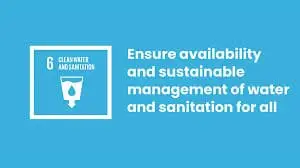The third Sustainable Development Goal (SDG 3) aims to ensure healthy lives and promote well-being for all at all ages. Good health is essential for sustainable development, as it enables individuals to contribute to society and the economy. SDG 3 focuses on reducing the global burden of disease and ensuring that everyone has access to quality healthcare services.
Understanding Health and Well-being
Health is a fundamental human right, and achieving SDG 3 requires addressing the social, economic, and environmental determinants of health. Well-being encompasses physical, mental, and social health, and is influenced by factors such as access to healthcare, nutritious food, clean water, and safe environments.
Key Targets of SDG 3
- Reduce Maternal Mortality: By 2030, reduce the global maternal mortality ratio to less than 70 per 100,000 live births.
- End Preventable Deaths of Newborns and Children: By 2030, end preventable deaths of newborns and children under 5 years of age, aiming to reduce neonatal mortality to at least as low as 12 per 1,000 live births and under-5 mortality to at least as low as 25 per 1,000 live births.
- Fight Communicable Diseases: By 2030, end the epidemics of AIDS, tuberculosis, malaria, and neglected tropical diseases, and combat hepatitis, water-borne diseases, and other communicable diseases.
- Reduce Non-communicable Diseases: By 2030, reduce by one third premature mortality from non-communicable diseases through prevention and treatment, and promote mental health and well-being.
- Universal Health Coverage: Achieve universal health coverage, including financial risk protection, access to quality essential healthcare services, and access to safe, effective, quality, and affordable essential medicines and vaccines for all.
- Reduce Substance Abuse: Strengthen the prevention and treatment of substance abuse, including narcotic drug abuse and harmful use of alcohol.
- Reduce Road Injuries and Deaths: By 2020, halve the number of global deaths and injuries from road traffic accidents.
- Universal Access to Sexual and Reproductive Health: Ensure universal access to sexual and reproductive healthcare services, including family planning, information and education, and the integration of reproductive health into national strategies and programs.
- Tobacco Control: Strengthen the implementation of the World Health Organization Framework Convention on Tobacco Control in all countries, as appropriate.
- Support Research and Development: Support the research and development of vaccines and medicines for the communicable and non-communicable diseases that primarily affect developing countries, provide access to affordable essential medicines and vaccines, and, in particular, provide access to medicines for all.
Strategies for Achieving SDG 3
- Strengthening Health Systems: Improve health systems to provide quality care, ensure availability of essential medicines, and address the shortage of healthcare workers.
- Investing in Health Infrastructure: Develop healthcare infrastructure, particularly in underserved areas, to ensure that everyone has access to necessary services.
- Promoting Preventive Care: Emphasize preventive care measures, such as vaccinations, regular health check-ups, and health education, to reduce the incidence of diseases.
- Addressing Social Determinants of Health: Tackle the social determinants of health by improving access to clean water, sanitation, nutritious food, and safe living environments.
- Enhancing Health Education: Provide comprehensive health education to inform people about healthy lifestyles, disease prevention, and the importance of seeking medical care.
The Importance of SDG 3 in the 2030 Agenda
SDG 3 is vital for the overall success of the 2030 Agenda for Sustainable Development. Good health and well-being are foundational to economic growth, social development, and environmental sustainability. By ensuring that everyone has access to quality healthcare and promoting healthy lifestyles, we can create a world where all individuals can thrive and contribute to their communities.




